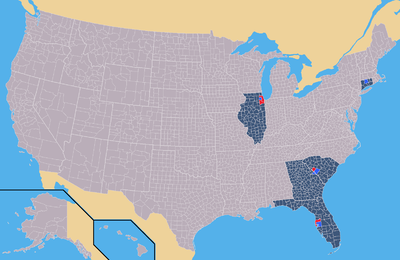New European assembly elections, December 2011
| |||||||||||||||||||||||||||||||||
All 11 seats to the Imperial Diet | |||||||||||||||||||||||||||||||||
|---|---|---|---|---|---|---|---|---|---|---|---|---|---|---|---|---|---|---|---|---|---|---|---|---|---|---|---|---|---|---|---|---|---|
| |||||||||||||||||||||||||||||||||
 | |||||||||||||||||||||||||||||||||
| |||||||||||||||||||||||||||||||||
Assembly elections to the Imperial Diet were held in New Europe from December 2 until December 31, 2011, 11 months after the previous election. An international poll from December 5, 2011 placed the Socialist Party in first place with 44.44% of the vote out of 18 community leaders who voted. Polls closed on January 1, 2012 resulting in the Nationalist Party remaining with the majority of seats in the Imperial Diet.
Background
The re-establishment of New Europe under Alexander Huber resulted in the continuation of a Nationalist majority Diet, headed by himself. This sitting of the legislature was marked by Huber's ability to unite all parties into forming a stable government as well as his alliances with other party leaders to maintain a conservative New Europe, which prompted protests from some Socialists later on. Following the first publishing of the reformed Nationalist Parties stances on social issues, the Socialist Party provided support for the government of Chancellor Huber. In October 2011, the Socialists withdrew their backing but the Centrist Party under Jorge Contreras were split and the Nationalists maintained their ability to stop or pass legislation.
Campaign
Participating parties
The participating parties in the election are three political formations : the nationalist right-wing Nationalist Party (NENP), headed by Jorgen Anders; the moderate Centrist Party which is a split alliance with the other two parties headed by Illinois current State Leader Jorge Contreras; and the left-wing Socialist Party headed by Akhil Chokshi.
Both the Nationalist and Socialist parties criticized the decision of the Centrist party to allow its members to freely join in alliance with other parties of the opposition. Consequently, the leaders of both parties have made implicit calls for the Centrist party to fully join their alliance.
The below table lists the most prominent parties in the New European political scene:
| Party | Ideology | 2011 Seats | |
| Nationalist Party | National conservatism | 5 | |
| Socialist Party | Social democracy-Social liberalism | 4 | |
| Centrist Party | Centrism-Republicanism | 2 |
Results
Interestingly, the alliances made by members of the Centrist Party meant gains for both of the Socialist and Nationalist Parties during the election and secured a majority for the Nationalist's. Ideologically, New European conservatism experienced its closest victory in history. Chancellor Perez acknowledged the interesting times New Europe was facing, with its government activity yields at a record high. He said, "Now our fate has come full circle. We have stopped being part of the problem and started becoming part of the solution. A micronational miracle has come about. The New European Empire has fully transitioned from a fascist racial imperialist regime to a fully developed micronational democracy."


